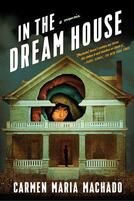Brilliant, but Buried: In the Dream House

REVIEWED BY KAS ROTH
Depending on whom you ask, Kas Roth is either a mechanically inclined writer or an engineer with an excellent vocabulary. She got her start writing technical manuals for her coworkers and clinical staff as a biomedical technician for a large hospital. She left engineering three years ago to focus on freelance writing. As a freelancer, she’s written a bit of everything from SEO to book reviews. She lives with her wife and their dog and cats. In her free time, she writes a bit of fiction and plays a lot of video games. You can read more about her here.
Depending on whom you ask, Kas Roth is either a mechanically inclined writer or an engineer with an excellent vocabulary. She got her start writing technical manuals for her coworkers and clinical staff as a biomedical technician for a large hospital. She left engineering three years ago to focus on freelance writing. As a freelancer, she’s written a bit of everything from SEO to book reviews. She lives with her wife and their dog and cats. In her free time, she writes a bit of fiction and plays a lot of video games. You can read more about her here.

